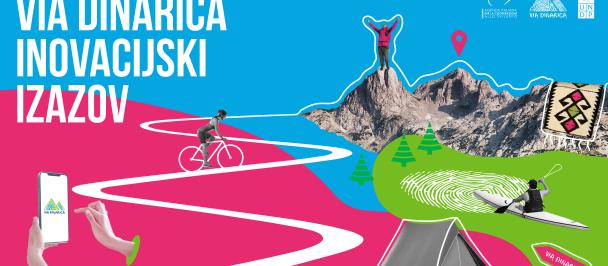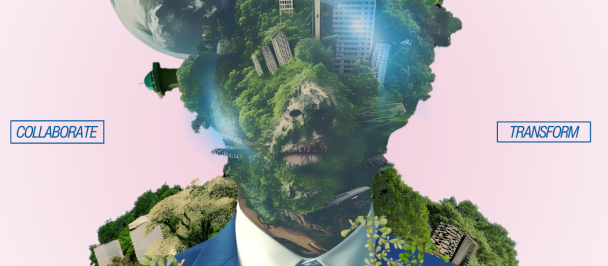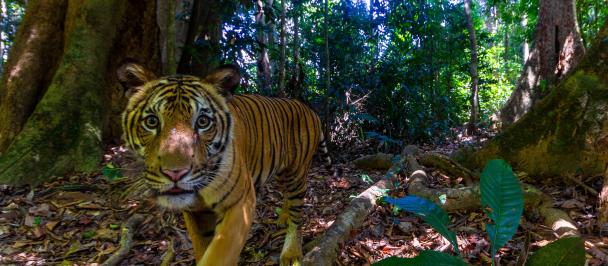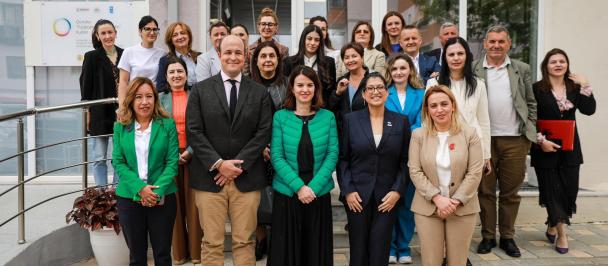Can Green Sukuk change the lives of Indonesian seasonal scavengers for the better?
August 10, 2022

The revitalized Piyungan landfill, funded by the UNDP-supported Green Sukuk, with waste now isolated from the environment to prevent pollution.
It was 5.30 in the afternoon, on a dry day. A long convoy of garbage-laden trucks headed for the dump, billowing up dust. A foul smell on the breeze. This is a common sight at the Piyungan landfill, or as referred to by the locals as TPA Piyungan – Tempat Pembuangan Akhir Piyungan, which is located in Bantul Regency of Indonesia’s Special Region of Yogyakarta.
As part of efforts to reduce greenhouse gas emissions, the landfill was recently rejuvenated using proceeds from Green Sukuk, the issuance of which was supported by UNDP Indonesia.

69-year-old scavenger, Barjan searches for salvageable items in Piyungan Landfill
The open site landfill was partially turned into a sanitary landfill, allowing garbage to be segregated for improved decomposition. A system of pipelines is also placed at various places to alleviate methane gas buildup and avoid future explosions.
For many of the seasonal scavengers at the site, the revitalization could provide an opportunity to improve earnings.
Barefooted with a large rattan basket on her back is 69-year-old Barjan, who has just finished strolling around the landfill searching deep into the dump. Waste collectors like Barjan sift through piles of garbage, plastic bottles, empty containers, in search of salvageable items that she then exchanges for money. “I am lucky today. I collected around 15 kg of plastic waste. With this amount, I can earn around IDR 30,000 (USD2).”
For farmers like Barjan, Piyungan has become a lifeline during the low season for farmers. She leaves home 50 km away, in the hope of earning money. The landfill provides a two-fold solution – income for farmers in need and assistance to a government hoping to address an emergency situation.
Barjan’s story is one of many at Piyungan landfill, where seasonal scavengers dominate the site, leaving their families behind in the surrounding cities and regencies.
“After planting season, there is nothing I can do in the village, I am too old and unskilled to work in a factory. Being a waste picker is the only thing I can do to make ends meet. I will go back to my village when harvest season comes,” she said.

Maryono, leader of Mardika Scavenger Group in Piyungan landfill
Sitting on top of a pile of waste is 57-year-old scavenger Maryono, who said that on average waste pickers can earn up to IDR 100,000 per day.
“We are grateful that we are still able to buy food every day,” he said.
It is estimated that around 447 waste pickers rely on Piyungan landfill for economic means, highlighting the importance of the landfill as an economic hub. Waste is sorted into categories —items to be sold and items that can be recycled, as part of efforts to support the Government of Indonesia enhance the waste management system, from the waste collection up to treatment.
The ongoing efforts to reduce greenhouse gas effects in the landfill have been supported by Indonesia’s Ministry of Finance which has also introduced a green sukuk—sharia compliant bond to finance climate change mitigation and adaptation.
UNDP has worked with the Government of Indonesia on Green Sukuk since it was first issued in 2018. The partnership ensures that the funds promote projects that focus on the transition to a low-emissions economy and climate resilient growth. UNDP’s support includes developing a green framework and preparing the annual Green Sukuk Allocation and Impact Report. The revitalization of the Piyungan landfill is an example of how sustainable finance underpins environmental projects to reduce greenhouses gas emission such as from the waste management sector.
The Government plans to issue another retail Green Sukuk in November 2022 which can be purchased from as little as IDR 1 million at official distribution partners. Over the years, these instruments have shown the success in helping Indonesia achieve its commitment to overcome climate change which can further be learned through the annual Green Sukuk Allocation and Impact Report.
###
Written by Wahyuwidi Cinthya
Photos by Ikbal Alexander
Edited by Tomi Soetjipto and Ranjit Jose

 Locations
Locations


